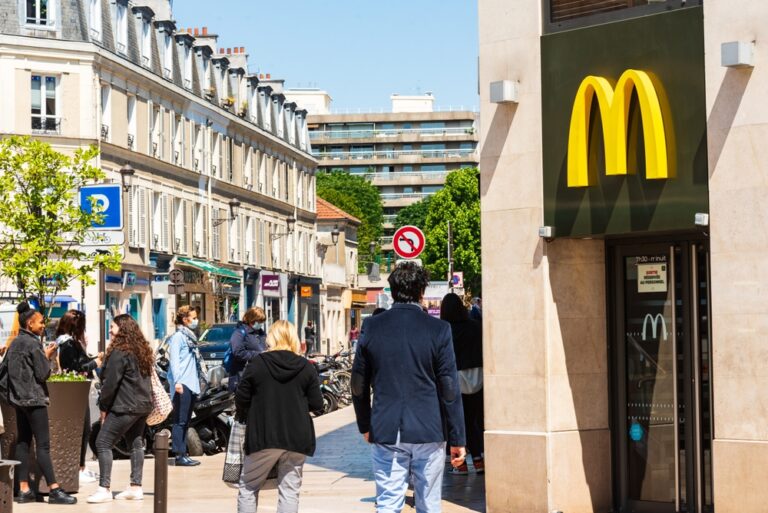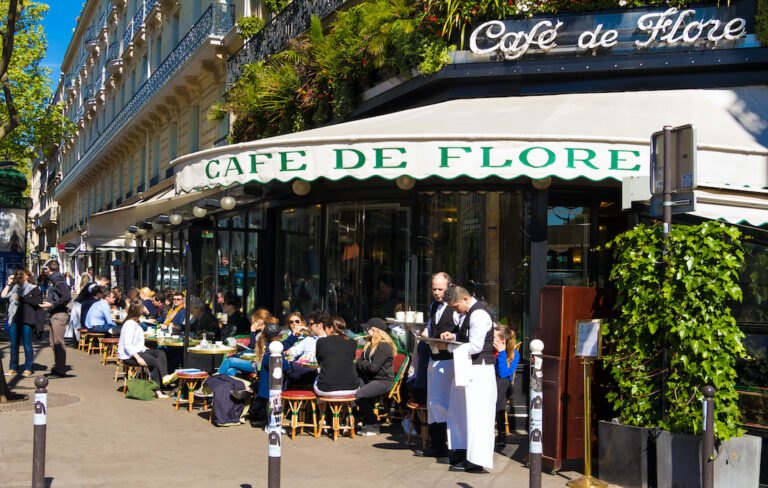One of the immense delights of living à la française when the New Year rolls around: Not making any resolutions.
Once, I celebrated New Year’s Eve in San Francisco on a rooftop with a strange mix of college besties, acquaintances, and complete strangers. A few sloppy puffs of cigar (a first for me), blended with many glasses of prosecco did nothing to settle my unease. After years of living in Paris, San Francisco felt unfamiliar, even lonely. I’d come home for the holidays to a town, a state, and a culture I no longer felt I knew. Displacement has a curious way of creeping up on you, and the feeling comes in multiple forms. Physical displacement is one facet of it; cultural displacement another. That evening, I encountered both.
Stated plainly: I could not for the life of me listen to another New Year’s resolution that night.
It is a singularly American practice to make New Year’s resolutions. One I take a wicked pleasure in refuting, which is just one of many reasons France has felt like home from the get-go. The French have resolve: They have no need for resolution.
Are the French simply more pragmatic? Or more pessimistic? Or, dare I say it, realistic? After all, research shows that only 8% of people who have made a New Year’s Resolution are able to meet their goals. In other words, resolutions are 92% guaranteed to fail. This is likely why content floating around the American media bubble in January focuses on the secrets to beating the odds and ‘sticking to your New Years Resolutions’. Americans call this optimism. The French call it naiveté.
For a tradition that dates as far back as Ancient Rome, you would think that French civilization, which proudly celebrates its ties to antiquity, might have laid claim to this ancient tradition. But perhaps all that has prevailed is French resistance to would-be conquerers.
Malheureusement, realism, pessimism and pragmatism are three far too obvious –isms of an answer in an attempt to account for the resolution resistance. Another false answer is the fear of failure. Although the French take to failure like cats take to water (read: infrequently and poorly), a fear of failure is not the primary culprit behind French démotivation on January 1st.
Alors, pourquoi? The French are a deeply psychological people. To grasp the complexity of their cultural tics and mania, you have to scratch past the surface. The long answer (in a nutshell)is: the French reject the notion that Something is Wrong With Them.
Unlike the United States of Self-Help, the French don’t believe in a “right” or “wrong” way to live. They don’t buy into the idea that something in their lives needs fixing. There is no Hollywood-esque vision of perfection to strive towards; none of what Umberto Eco deems the “hyperreal”. The French live in an alternate version of reality, one that prefers moderation to extremes, and guilt to pleasure. To the French, hard-won personal liberty is preferable to do or don’t diktats that impinge on common sense. In France, self-help books sit on shelves, hardening like stale baguettes.
If that sounds boring, and anti-climatic, that’s likely because it is. But the French implicitly understand what the American collective psyche cannot accept about the human psyche: extremes invite extremes. And extremes are unrealistic.
This is most visible in Americans’ relationship to food, which is polarizing at best. Foods are either ‘clean’ or ‘unclean’, and the relationship between consumer and food is riddled with neuroses. Michael Pollen has noted, for instance, in his In Defense of Food: An Eater’s Manifesto, that Americans associate the word chocolate cake with guilt, whereas French eaters associate it with celebration.
What do Americans do to work off that guilt? Arise in the cold light of post-holiday mornings to enact extreme measures of purging, detoxing and training. Admittedly, I have forcé le trait here to make a point. Yet, extremes show up in many aspects of American culture. And much of it surfaces on January 1.
Resolutions in and of themselves are not at fault. Our inability to keep them, and French skepticism of drastic revolutions, is because often, the resolutions themselves are less about individual choice, and more about getting swept up in the zeitgeist. The French approach is more about recognizing personal needs, then improving oneself through small modifications to everyday behavior. This can begin any day of the year.
Moderation is, after all, French culture’s golden rule. To come back to the food example, France is known for its heavy, butter-soaked cuisine, yet most of these offensive meals are consumed in moderation. Take Mireille Guilliano’s word on this one. No crash diets, no self-help books, no weight-loss campaigns. As Michael Pollan would say, “Eat food. Not too much. Mostly plants.” The French version–for food and everything else–would be “Make healthy choices. Not all the time. Just most of it”.
So, American reader, if you’re still searching for a 2017 resolution (besides becoming fluent in French), I invite you to consider the following: Reject the idea that Something is Wrong With You. Opt for moderation. Kiss resolutions good-bye. I know I did.
(PS. It’s pretty damn great).






